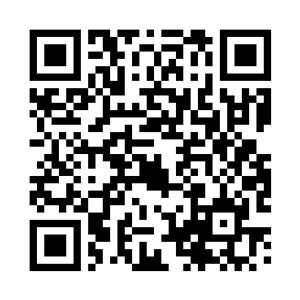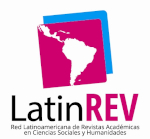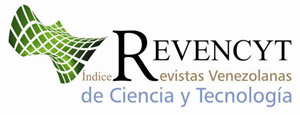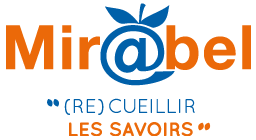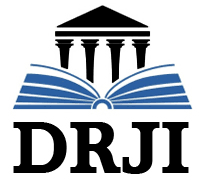Role of oral and intangible heritage in environmental conservation
A contribution to sustainable development
Keywords:
oral and intangible heritage, environmental conservation, sustainable developmentAbstract
The purpose of this article is to address the relationship between oral and intangible heritage and sustainable development, based on the analysis of the components of biodiversity, immersed in the ancestral cultural manifestations exhibited at the Barranquilla-Colombia carnival and their relationship with sustainable development. It was carried out under the interpretive paradigm with a qualitative approach, it was limited to the type of ethnographic research. Taking as the population object of study the leaders of the tradition, actors and makers of the Barranquilla carnival, the sample was represented by key informants selected by the snowball methodology. The participant observation, also the semi-structured interview, was used as information gathering techniques. Categorization, triangulation, and theorizing were used as tools for validity and reliability; This made it possible to conclude that the Barranquilla carnival is a showcase for the biodiversity components of the Colombian Caribbean, it represents a window of opportunity to carry out environmental and heritage conservation exercises in an integral way, which allow a truly sustainable development. It is recommended to take advantage of the massive scope of the carnival events to raise awareness in environmental education, simultaneously with heritage dissemination activities.
Downloads
References
Ardila Suáre, E. E., y Rueda Arenas, J. F. (2013, julio-diciembre). La saturación teórica en la teoría fundamentada: su delimitación en el análisis de trayectorias de vida de víctimas del desplazamiento forzado en Colombia. Revista Colombiana de Sociología, 36(2), 93-114.
Borda, P., Dabenigno, V., Freidin, B. y Güelman, M. (2017). Herramientas para la investigación Social. Serie: Cuadernos de Métodos y Técnicas de la investigación social ¿Cómo se hace? Nº 2. Estrategias para el análisis de datos cualitativos. Buenos Aires: Instituto de investigaciones Gino Germani, Universidad de Buenos Aires.
Cisterna Cabrera, F. (2005). Categorización y triangulación como procesos de validación del conocimiento en investigación cualitativa. Theoria, 14(1), 61-71.
Martínez Miguélez, M. (2006). Validez y confiabilidad en la metodología cualitativa. Paradígma, 27(2), 7-33.
Mendieta Izquierdo, G. (abril-septiembre de 2015). Informantes y muestreo en investigación cualitativa. Investigaciones Andina, 17(30), 1148-1150.
Ministerio de Cultura. (2015). Plan especial de salvaguardia. Carnaval de Barranquilla. Bogotá D.C.: Ministerio de cultura.
Monje Alvarez, C. (2011). Metodología de la Investigación Cualitativa y Cuantitativa. Guía Didáctica. Neiva- Colombia: Universidad Surcolombiana.
Murillo, J. y Martinez, C. (2010). Investigación Etnográfica . Mexico: Universidad Autonoma de Mexico.
Organización de las Naciones Unidas para la Educación, la Ciencia y la Cultura. (2011). Patrimonio cultural inmaterial y desarrollo sostenible. París.: Organización de las Naciones Unidas para la Educación, la Ciencia y la Cultura.
Organización de las Naciones Unidas para la Educación, la Ciencia y la Cultura. UNESCO. (2003). Convención para la salvaguardia del patrimonio cultural inmaterial. Conferencia General de la Organización de las Naciones Unidas para la Educación. (p. 14). París: UNESCO.
Rodríguez Gómez, G., Gil Flores, J. y Garcés Jiménez, E. (1999). Metodología de investigación cualitativa. Mälaga, España: Algibe.
Sánchez, V., & Guiza, B. (1989). Glosario de terminos sobre medio ambiente. Santiago, Chile: UNESCO-PNUMA.
Solano Alonso, J. y Bassi Labarrera, R. (2017). Carnaval de Barranquilla: patrimonio musical y danzario del Caribe Colombiano. Barranquilla: Universidad Simón Bolivar.
Strauss, A. y Corbin, J. (2002). Bases de la investigación cualitativa. Técnicas y procedimientos para desarrollar la teoría fundamentada . Medellín-Colombia: Universidad de Antioquia .
Taylor, S.J. y Bodgan, R. (1984). Introducción a los métodos cualitativos de investigación. La búsqueda de significados. Bárcelona: Paidós Ibérica.
Zapata Stacey, R. (2012). Determinar los impactos ambientales generados por el carnaval de Barranquilla para elaborar una propuesta de gestión ambiental. Barranquilla-Colombia: Pontificia Universidad Javeriana
Published
How to Cite
Issue
Section
License

This work is licensed under a Creative Commons Attribution-NonCommercial-ShareAlike 4.0 International License.





